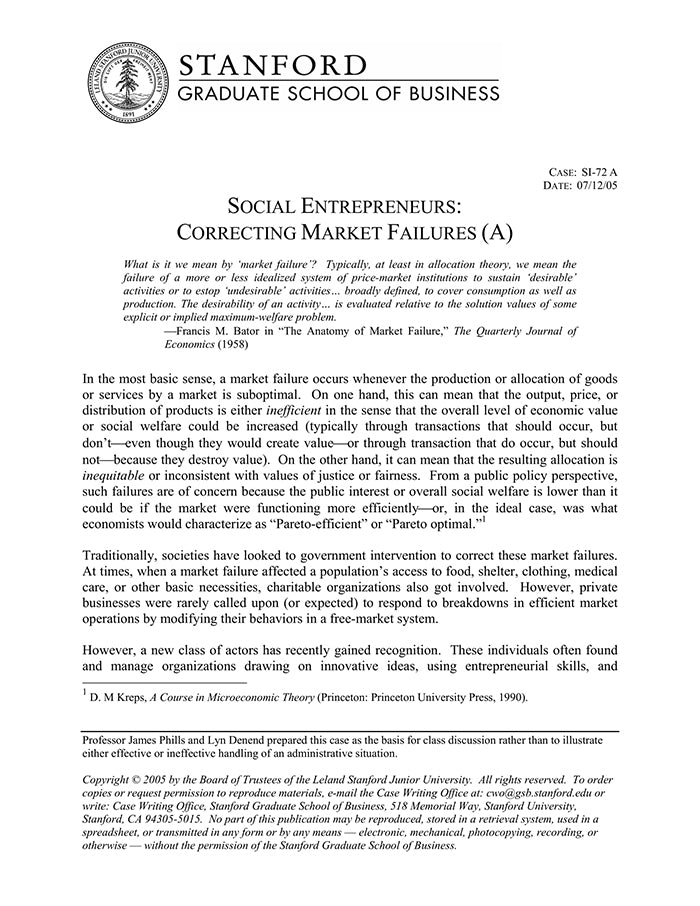Social Entrepreneurs: Correcting Market Failures (A)
受取状況を読み込めませんでした
In the most basic sense, a market failure occurs whenever the production or allocation of goods or services by a market is suboptimal. On one hand, this can mean that the output, price, or distribution of products is either inefficient in the sense that the overall level of economic value or social welfare could be increased. On the other hand, it can mean that the resulting allocation is inequitable or inconsistent with values of justice or fairness. From a public policy perspective, such failures are of concern because the public interest or overall social welfare is lower than it could be if the market were functioning more efficiently. Traditionally, societies have looked to government intervention to correct these market failures. Sometimes, charitable organizations got involved. However, private businesses were rarely called upon (or expected) to respond to breakdowns in efficient market operations by modifying their behaviors in a free-market system. However, a new class of actors has recently gained recognition. These individuals often found and manage organizations drawing on innovative ideas, using entrepreneurial skills, and leveraging market principles, but with one important difference from traditional entrepreneurs: they prioritize social impact over the creation of wealth. These "social entrepreneurs" have discovered and implemented new ways of creating social and environmental value by serving the needs of poor, disadvantaged, and neglected communities. Examines the insights, aspirations, and impact of three leading social entrepreneurs, their organizations, and their efforts to correct a diverse array of classical market failures.
【書誌情報】
ページ数:36ページ
サイズ:A4
商品番号:HBSP-SI72A
発行日:2005/7/12
登録日:2007/8/16


